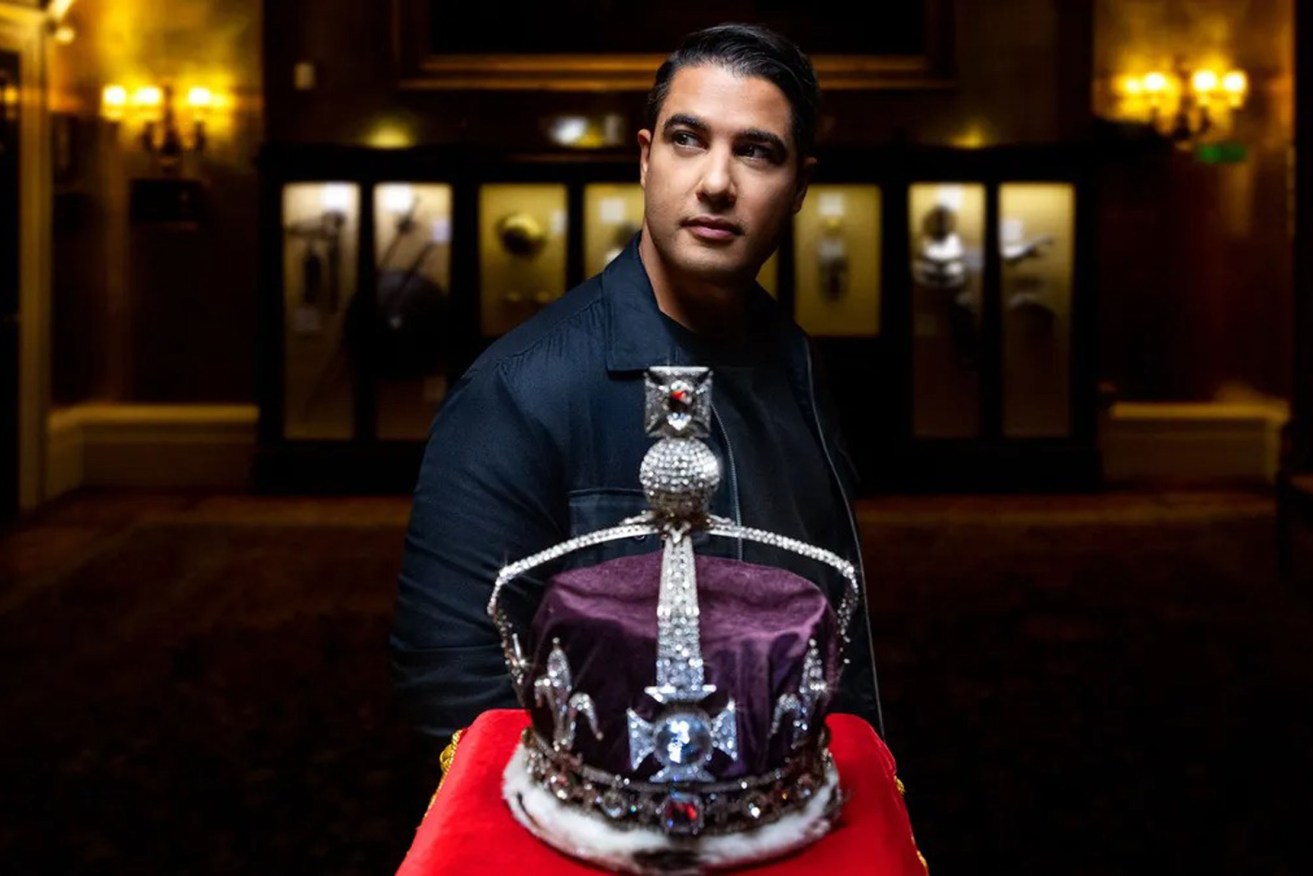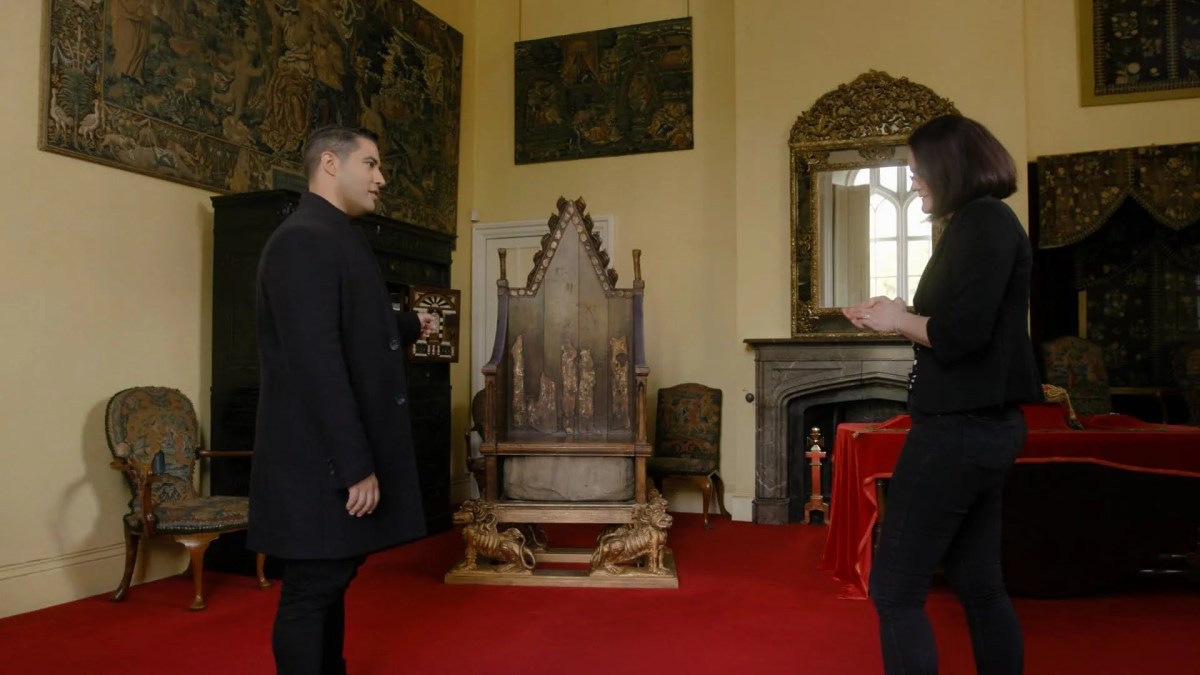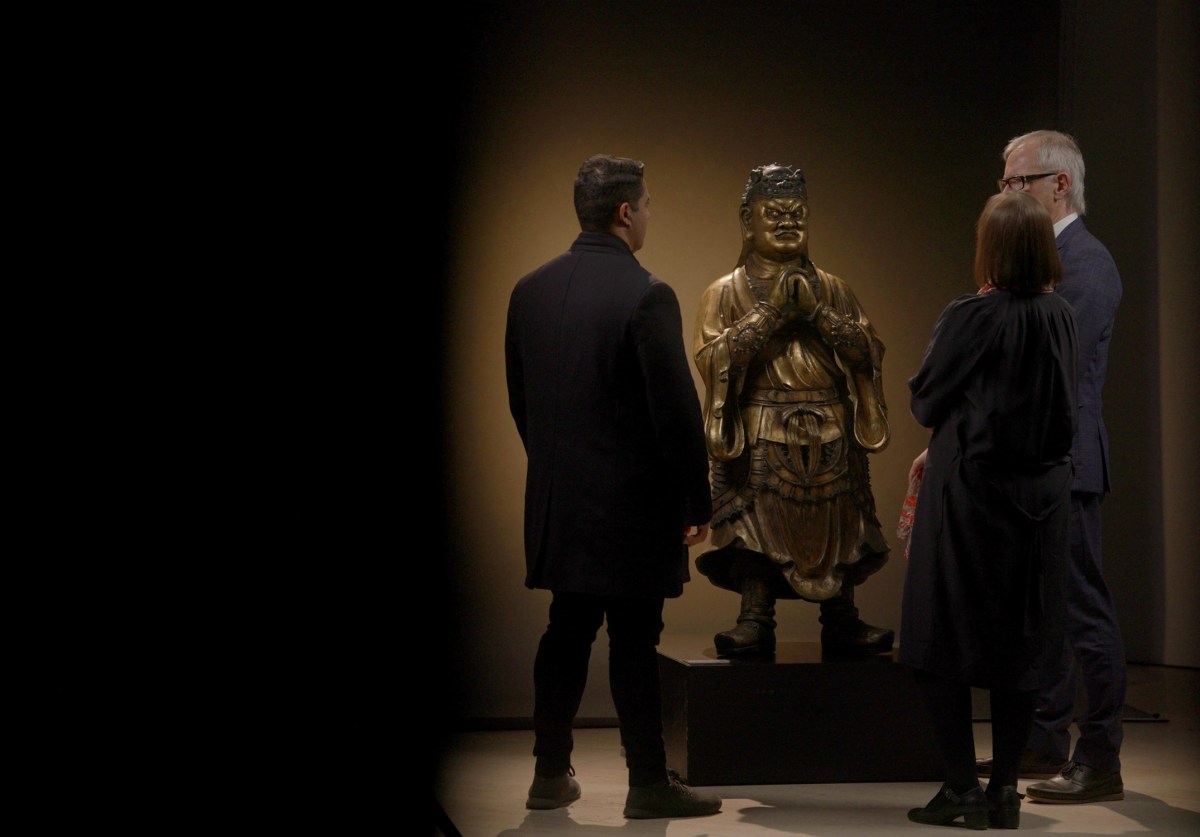‘Indiana Jones in reverse’: The hunt for stuff the British ‘stole’
As Britain prepares for the King’s coronation next year, a new ABC TV series embarks on a global ‘scavenger hunt’ to find priceless relics taken by the British over hundreds of years – including one for His Majesty.

'Each of these mysteries is an emotional rollercoaster': Marc Fennell hosts the ABC series 'Stuff the British Stole'. Photo: ABC TV
WARNING: Aboriginal and Torres Strait Islander viewers are warned that this article contains information about deceased persons.
———–
Author and host of Stuff the British Stole, Marc Fennell, spent months travelling the world to interview historians, experts and the many “voices who were left out of the first draft of history”.
He says the relics he showcases – the Stone of Scone, a Golden Warrior statue, the Shellal mosaic, the regalia of Crowfoot, Yagan man and the Kor-I-Noor diamond (about which much has been written) – have at one time, or are still, in Australian and UK museums and galleries instead of with their rightful owners.
“I joke that the show [based on the ABC podcast of the same name] is Indiana Jones in reverse,” he says. “He goes around the world and takes stuff and says it belongs in a museum… I come along and go, ‘Does it?’.”
The Stone of Scone
Fennell (The School that Tried to End Racism, Mastermind) tells The New Daily the so-called Stone of Scone – or the Stone of Destiny – will form part of the King’s coronation on May 6.
The stone was taken from the Scottish by Edward I in 1296 during the English invasion and now sits in Westminster Abbey. A throne was built and used for coronation ceremonies thereafter.
“The legend goes if you sat on the stone you were meant to be the Scottish king. So when the English take it, and sit on the stone, what they are saying is we – de facto – become kings of Scotland,” Fennell explains.
“It’s taking a crucial symbol of royalty. Object meanings over time change. What its historical meaning was is one thing, but as the relationship between Scotland and England changes over time, people that want Scottish independence… Brexit… start to lay a lot of meaning on this stone.
“It becomes a symbol of what makes Scotland distinct, and that is where you get the lead up in 1950 where a group of Scottish students at Christmas time go in and steal it.”
Do the Scots still believe it was stolen?
“It blends into mythology and it becomes less about what actually happened and more about, ‘It was ours and it’s not here’,” Fennell says.
In his hunt for the truth of origin across the six episodes, he asks whether the artefacts were stolen, but that’s not always the only question.
“It’s by examining how artefacts move through history and the circumstances around it, and you get a picture of how the empire worked and how our lives have changed.”

The Stone of Scone is a fascinating story, says Fennell. Photo: ABC
The Shellal Mosaic
Travelling to the Middle East, Fennell takes us through the history of the Shellal Mosaic, and describes it as “arguably the most controversial artwork in Australia”.
The mosaic is an example of Byzantine art created in 561-562 AD under the reign of the Eastern Roman Emperor Justinian. According to the Australian War Memorial, where it now resides, it was excavated, dismantled and eventually brought to Australia by the end of the war, with troops keen to get their hands on relics to bring home.
“Its pathway opens up tricky conversations around Israel and Palestine, around Australia’s Anzac history,” he says.
“It’s important because it shows the complexity of history, of Australia’s relationship with Great Britain, and the AWM didn’t let us film the mosaic. A story like this is challenging for them. They didn’t give us an interview or much to go on to offer their perspective.”
The Golden Warrior statue
This statue – also known as the “guardian figure of Wei Tuo”, which binds together China, the UK and Australia – is in the Art Gallery of New South Wales.
According to the gallery’s website, the sculpture depicts a guardian of the Buddhist faith and teachings during Ming dynasty (1368 to 1644). The gallery allowed the documentary team to film the warrior and also answered questions about it.
“The sculpture is said to have been taken from the ruins of the Palace of Ten Thousand Years near Beijing in late 1900 or early 1901 by members of the New South Wales Naval Contingent, who were there to support British troops during the Boxer Uprising (1899 to 1901),” Fennell says.
“The exact location from which the sculpture was taken is not known.”

The Golden Warrior statue remains on display in Sydney. Photo: ABC
Regalia of Crowfoot
The regalia of Crowfoot, a chief of the Blackfoot nation, ended up in the Exeter Museum in the UK.
“[It’s] the regalia of a much-loved chief and it’s been sitting in the UK for a long time,” Fennell says. “We filmed its final return.
“Objects are not just objects. For people who have had a lot taken from them, this is a proxy for a much bigger loss.”
Yagan
Yagan was a Noongar man from Western Australian. According to the Noongarculture website, Yagan was decapitated after being killed in a fight with James Keats. His head was taken to England aboard the Cornwallis in September 1833 and handed over to the Liverpool Museum.
“Yagan remains a significant and legendary figure to Noongar people,” Fennell says. “He is a symbol of resistance to the European colonisation of country and culture.”
His head was repatriated in a significant burial by elders in 1997. Fennell says the “fight to bring him home is one of history’s wildest detective stories”.
“Each of these mysteries is an emotional rollercoaster with humour and heartbreak and that’s because our history is messy.
“But if we can unravel the truth, we can actually start to see ourselves and our world just that little bit clearer.”
Stuff the British Stole continues on ABC TV and on ABC iview from November 8 at 8pm.
This story was originally published on The New Daily.




